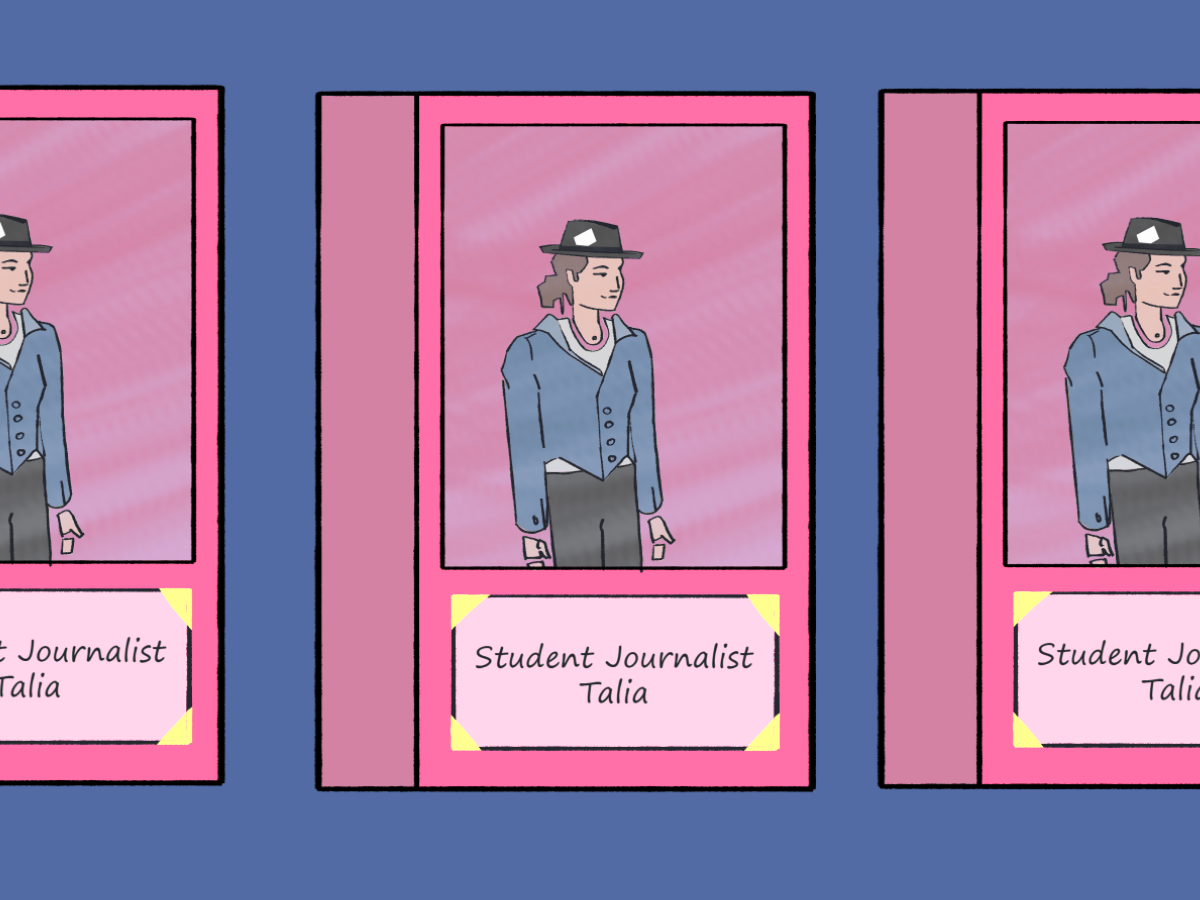Internet permanence and its effects on a student journalist
I love writing for the commentary section every week. I fill my Notes app with article ideas about light and silly topics. I dabble in satire, and ask the real questions, like why pets with food names are inherently adorable.
Writing “fluff” brings me (and hopefully others) laughter and joy, which is absolutely necessary in what is often a bleak newscape. I also strongly believe that it still offers creative commentary on the world. This article is not meant to discredit the fun stuff — ‘cause after all, it’s just as important.
However, as I’ve noticed this trend in my own writing tendencies, I’ve been pondering whether there’s something holding me back from tackling more “serious” issues.
While I often don’t feel like writing about these topics, when there’s something I do feel passionately about, there’s always a voice in my head telling me that sticking to what I know will never be controversial.
As a 20-year-old student, I’m often scared that I don’t have enough real-life experience to comment on big world issues. When I’m researching, no matter how much reading I do, I still feel uninformed and nervous to express how I feel.
Although some of these sentiments can be chalked up to impostor syndrome or a valid concern of not wanting to contribute to misinformation, part of my hesitancy stems from the permanence of the internet.
While archives of student newspapers have always existed, the accessibility of the internet raises the stakes for student journalists who are learning and experimenting through student media.
Voicing my opinions on more serious topics is scary because I know that anything that I publish now will follow me for the rest of my professional career.
I might be proud of my writing and my arguments at this stage, but I’m worried that in the future, I might change stances or develop more nuanced perspectives. I might not necessarily want my 20-year-old opinions to be easily accessible and out there forever.
At times, it seems ridiculous to hold my tongue in fear of something that may very well never happen. It’s completely possible that I will stay the same in all of my convictions for the rest of my life. But, I also want to keep an open mind and learn new things that will challenge these convictions.
I know that I should voice my opinions and trust people to understand personal and professional growth over time, but leaving that interpretation up to others is often daunting. It’s a concern that’s new to our generation of journalists that we will have to figure out as we go.
In the meantime, I’m going to try not to let the concept of internet permanence scare me from speaking out when I have something valuable to add to the dialogue. I’m going to try to not be afraid of being judged for the way I present my opinions.
As a journalist writing for the public interest, I shouldn’t need to censor my articles in case myself or others don’t agree with me later down the road. As long as I continue to base my writing on facts, diligent research, and good intentions, I’ll be okay, right?
Graphics by James Fay




